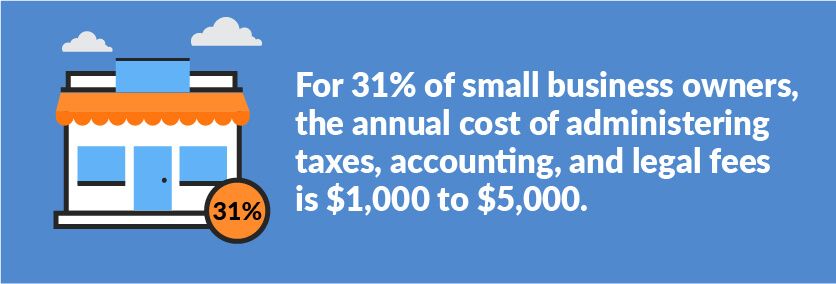Starting a business is exciting. But before you become your own boss, make sure you can afford to get your idea off the ground. You don’t want to run out of cash before you have the chance to start making a profit. Pay attention to the hidden costs of running a business.
Some business expenses, like the cost of your products, are clear. But, others are harder to anticipate. Look out for less obvious startup costs when you plan your company.
The hidden costs of running a business
Are you sure you’ve thought of every cost of starting your own business? Check out these five hidden costs of doing business that you might be missing.
1. Insurance
When you launch your business idea, you should have liability coverage. Liability coverage protects your business from losses that could occur if you get sued.
Liability insurance will give you the bare minimum protection. But, you can always get an insurance plan that offers more coverage. Depending on your company, you might need other types of small business insurance, including property, commercial auto, and unemployment policies.
Talk to an insurance agent who specializes in small business. Find an agent who is willing to get to know you and your business. That way, the agent will fully understand your needs and be able to get you the best rates on your policies.
2. Taxes
When you are your own boss, no one is withholding employment taxes from your paychecks. You have to withhold, report, and remit your employment taxes.
Unless you are incorporated, you need to pay self-employment tax. If you earn more than $400 per year, you need to pay the employee and employer portions of Social Security tax (12.4% of wages up to the 2018 wage base of $128,400) and Medicare tax (2.9% of wages). That’s a total of 15.3% of your wages that go towards self-employment tax.
You also need to pay income tax, which will vary based on your business structure and wage bracket. You make quarterly payments for both self employment and income taxes using Form 1040.
Failure to withhold payroll taxes could lead to some serious IRS penalties and fees. You will likely pay interest on the taxes you owe. In other cases, you might have to give up your tax refund, get property seized, or even serve jail time.
Taxes are part of the cost of running a small business, so don’t overlook them. You may want to consult a tax professional or accountant to find out your tax liabilities.
3. Permits and licenses
No matter what kind of business you open, you will most likely need some type of business license. The permits or licenses you need will vary depending on several factors.
Your business’s location plays a part in your licensing responsibilities. States and localities have different rules for business permits. Check with your state’s department of revenue to see your specific requirements.
The type of business you run will also determine which permits you need. Industries have different requirements for permits and licenses. For example, if you open a restaurant that serves alcohol, you will need an alcohol license.
Remember, you need to account for more than just the initial costs of your permits. Often, you have to renew permits and licenses periodically.
4. Legal and accounting fees
As you build your startup, you will become an expert at your business. But, you should leave some aspects of running your company to other professionals. You might need help with specialized tasks, including legal and financial obligations.
Legal and accounting fees can quickly add up. In the beginning, you will need to make legal and accounting decisions for your business. Some items you might deal with include your type of business structure, intellectual property protection, and an accounting method.
Lawyers and accountants can help you make the best choices for your new business. Without the help of professional services, you might make uninformed decisions.

As a small business, you won’t need full-time help from professionals. Only consult lawyers and accountants when it’s necessary. You can save money on professional fees by complying with business regulations and using accounting software for small business.
5. Credit card fees
Do you plan on letting customers pay with credit cards? This option gives customers opportunities to make larger purchases, meaning more revenue for you. But, offering a credit card payment option can increase the cost of doing business for your company.
To accept credit cards, you need to set up a merchant account through your bank. After completing the application process, you’re usually approved to accept major credit cards.
Then, you have to either lease or buy credit card processing equipment from the bank. If you run your startup online, you can also use an online payment processor.
Usually, the credit card processing company charges a fee for every transaction you run. Processing companies have different terms and rates, so shop around before choosing one.
A lot goes into starting a business. Let us help you with your accounting needs. With Patriot’s online accounting for small business, you can complete your books in a few easy steps. And, we offer free, U.S.-based support. Try it for free today.
